Camera attacks and conspiracy theories: How Ulez became a vigilante battleground
London’s ultra-low-emission zone is set to expand on Tuesday despite a vocal backlash – Maanya Sachdeva and Holly Evans look at the criticisms of the controversial scheme
Your support helps us to tell the story
From reproductive rights to climate change to Big Tech, The Independent is on the ground when the story is developing. Whether it's investigating the financials of Elon Musk's pro-Trump PAC or producing our latest documentary, 'The A Word', which shines a light on the American women fighting for reproductive rights, we know how important it is to parse out the facts from the messaging.
At such a critical moment in US history, we need reporters on the ground. Your donation allows us to keep sending journalists to speak to both sides of the story.
The Independent is trusted by Americans across the entire political spectrum. And unlike many other quality news outlets, we choose not to lock Americans out of our reporting and analysis with paywalls. We believe quality journalism should be available to everyone, paid for by those who can afford it.
Your support makes all the difference.For Londoners living on the outskirts of the capital, Sadiq Khan’s Ulez policy is due to take effect on Tuesday despite fierce backlash.
First announced by former mayor Boris Johnson in July 2014 and expanded to all 32 of London’s boroughs by Mr Khan, the scheme aims to reduce air pollution by charging non-compliant vehicles £12.50 a day to drive within an ultra-low-emission zone.
But the zone’s growth has triggered city-wide protests, a shock by-election result, and the rise of a vigilante group vandalising Ulez cameras. Speaking ahead of the expansion, Mr Khan insisted he will be “on the right of history” when it comes to the policy – but for now, he stands accused of “declaring war on motorists”.
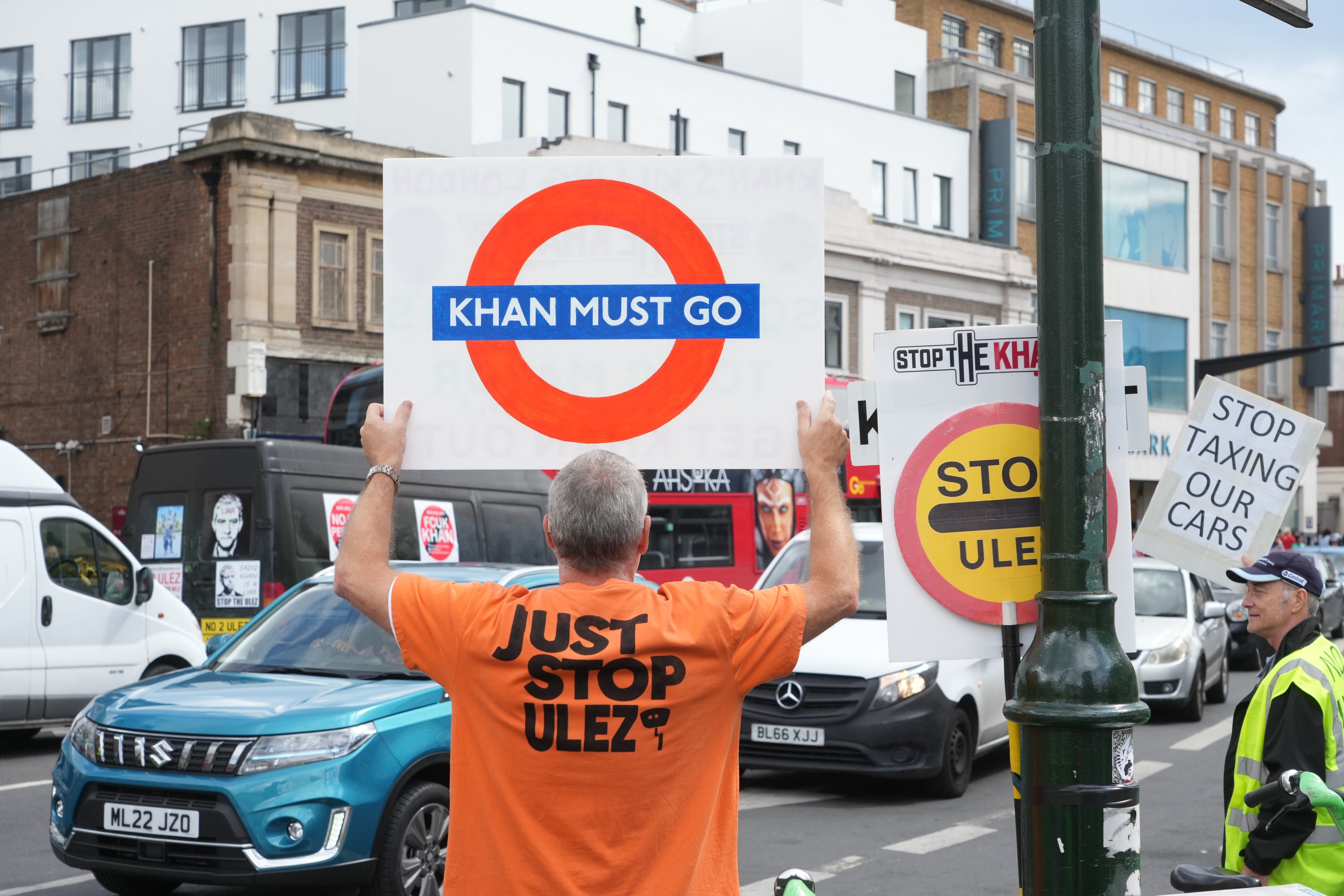
Launched within the central London congestion charge zone in 2019, the clean air policy means that cars and vans that don’t meet certain emissions standards have had to pay a daily fee or risk a £180 fine.
Mr Khan has always argued that only a minority of vehicles will be affected by the charge, with a spokesperson for the mayor’s office saying only one in 10 cars driving in outer London isn’t compliant – though this figure is disputed by critics. Separate figures obtained by the RAC show that more than 690,000 licensed cars in the whole of London are likely to be non-compliant, but this does not take into account other types of vehicle, or those that enter London from neighbouring counties.
TfL has allocated £160m of its budget for a scrappage scheme, which will pay out £2,000 to any Londoner wanting to scrap a non-compliant car and provide them with perks such as a free bus pass. This hasn’t been enough to sway the most ardent critics, though.
Amid claims that the scheme is a “cash grab from those that can least afford it”, and that it is ill-timed during a cost of living crisis, Mr Khan this week claimed that the backlash had been “weaponised” by conspiracy theorists and Covid-19 deniers. But how true is that?
On Twitter at least, it is not usual to see people who criticise Ulez intersperse their attacks with anti-vaccine rhetoric, scepticism about climate change and the net zero plan to tackle it, and claims of state surveillance.
Some posts use the hashtag “#Londonistan”, a term used in racist and Islamophobic tweets and to attack Mr Khan’s track record since he became mayor in 2016. Earlier this year, a group of protesters outside a People’s Question Time event in Ealing carried a placard associating Mr Khan with Nazis. The demonstrators’ use of the swastika was labelled “disgusting” by Labour MP David Lammy.
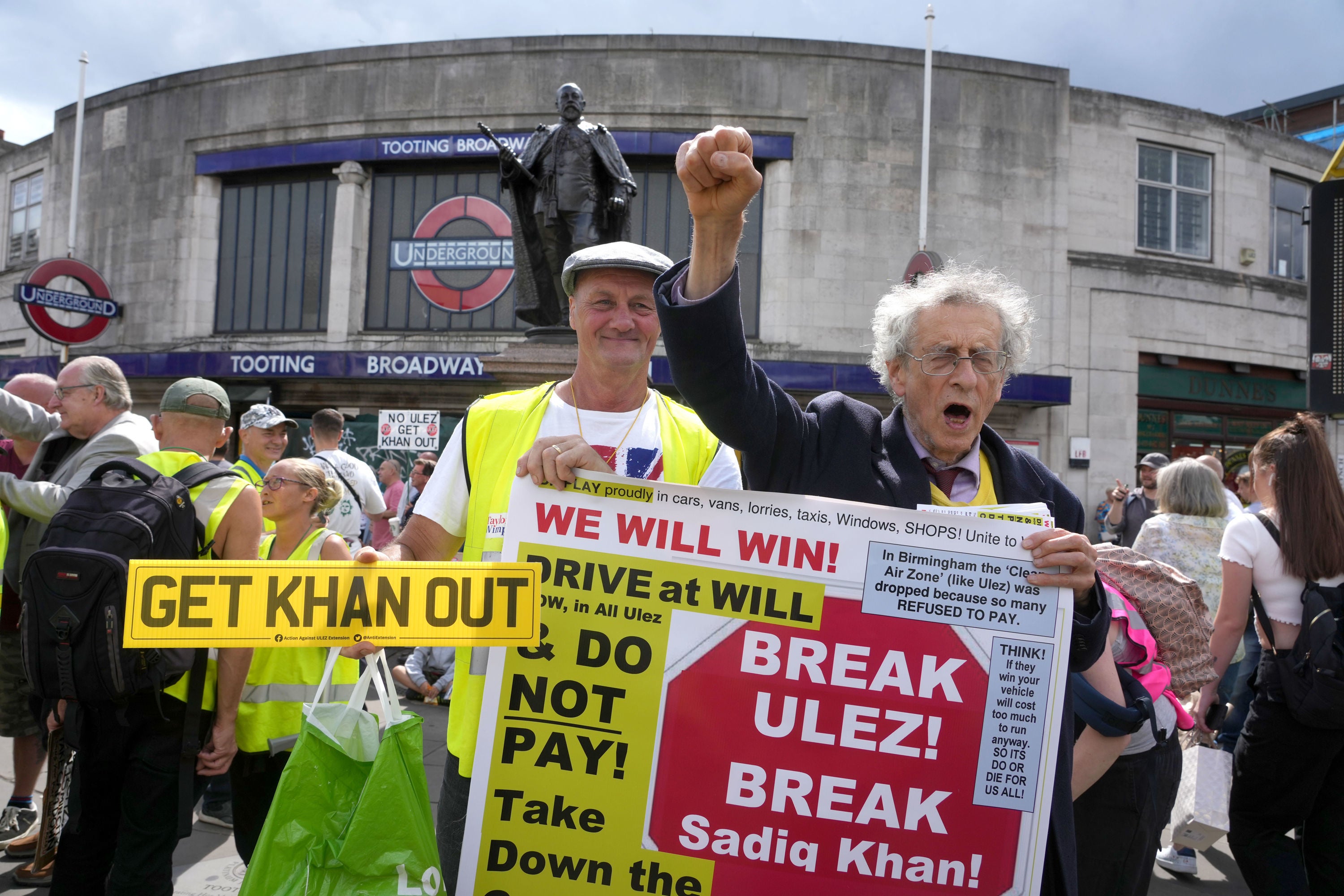
A number of ardent Ulez critics have compared the policy to the enforcement of social distancing and Covid vaccines, claiming there is no “science” to support such measures and that they constitute an “attack on freedom”.
One prominent Conservative commentator wrote on Twitter: “When pandemic propaganda was at its peak it was: ‘Get vaccinated to save granny.’ Now it’s: ‘Pay ULEZ to save kid’s lungs.’
Another said: “Net Zero has become the new Zero Covid. It’s not following the science. It’s following the agendas. Crass logic and draconian policies like ULEZ, LTNs and 15 minute cities won’t solve anything.”
But it isn’t just keyboard warriors who are raging against the plan.
Public opposition to Ulez has also led to the formation of an anonymous activist group called the “Blade Runners”, who have vowed to take down all of the scheme’s cameras. So far more than 380 have been targeted, with the Met Police reporting 185 destroyed cables, 164 stolen cameras, and 38 obscured. While the covert group has avoided creating social media accounts, one member interviewed by Mail Online claimed that the Blade Runners had more than 100 members involved in disabling the cameras.
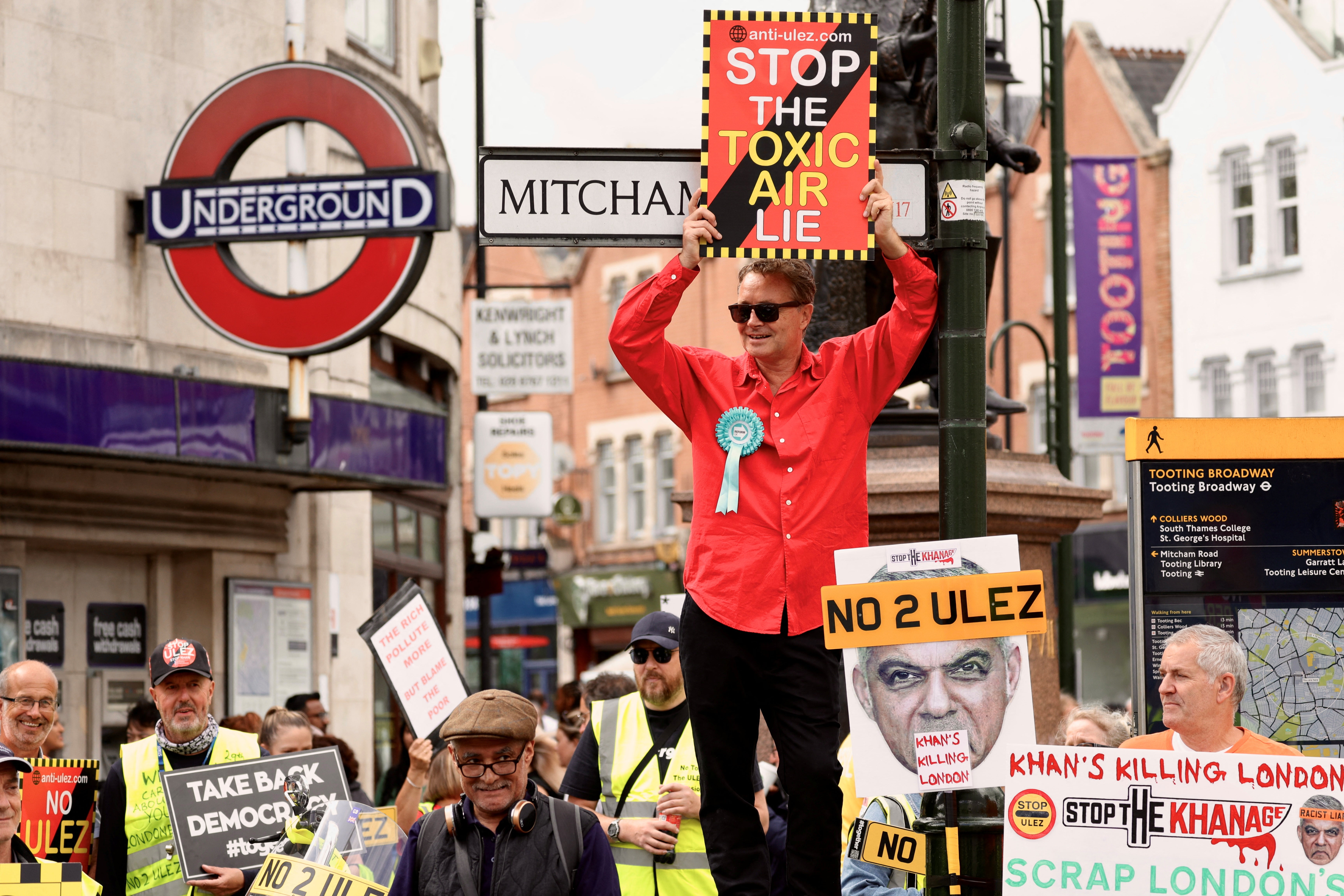
Opponents have warned that the vandalism will have an impact on the effectiveness of the expanded scheme when it comes into effect.
London mayoral candidate Howard Cox, of the Reform Party, warned that there would be “administrative turmoil” on Tuesday due to the broken cameras and a lack of signage.
“If there are no signs, there must be no fines,” he told The Independent. “And if Sadiq Khan believes that £2,000 of taxpayers’ hard-earned dosh is a massive and generous incentive to dump a still perfectly good to use, fully MOT’d vehicle, he is so out of touch with the cost of living reality that faces low-income drivers.”
Away from the conspiracies, vigilantes, and climate-change sceptics, there are certainly drivers who are concerned about the impact the scheme will have on their wallets, at a time when people are least able to afford an extra bill.
Critics have argued that the policy is unfair, and that because the worst-polluting cars tend to be older, it is likely that the additional charge will fall on lower-income drivers who have been unable to replace their vehicles recently.
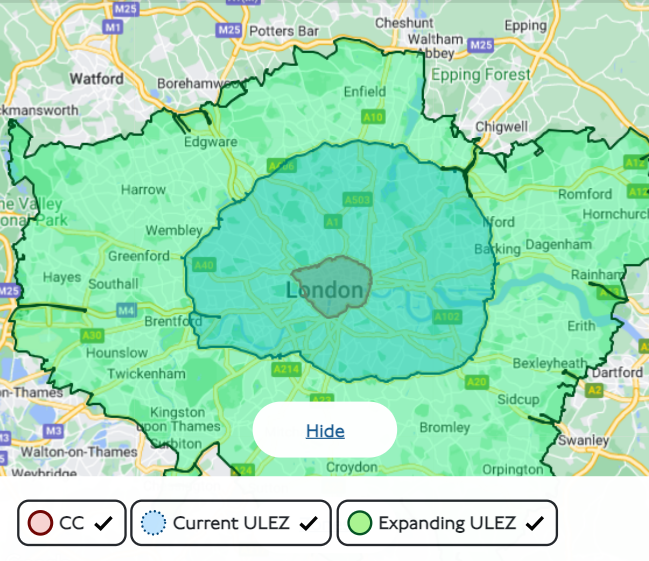
Paul Tucker, a 52-year-old vehicle body fitter who travels from Northolt to work in High Wycombe each day, has owned his Peugeot 106 Rally for more than 15 years, and will now be forced to take out a loan to buy a new car.
He said: “I feel targeted. It’s just another money-making scheme, and if the mayor was serious he’d issue a complete ban.
“I need a car to get to work, and I can’t afford one outright so I’m going to have to take out a loan to buy one. I’m going to be in debt because of Ulez.” He added: “A lot of people are going to suffer because of this scheme.”
Then there are those who have compliant vehicles, but have had to battle to prove it.
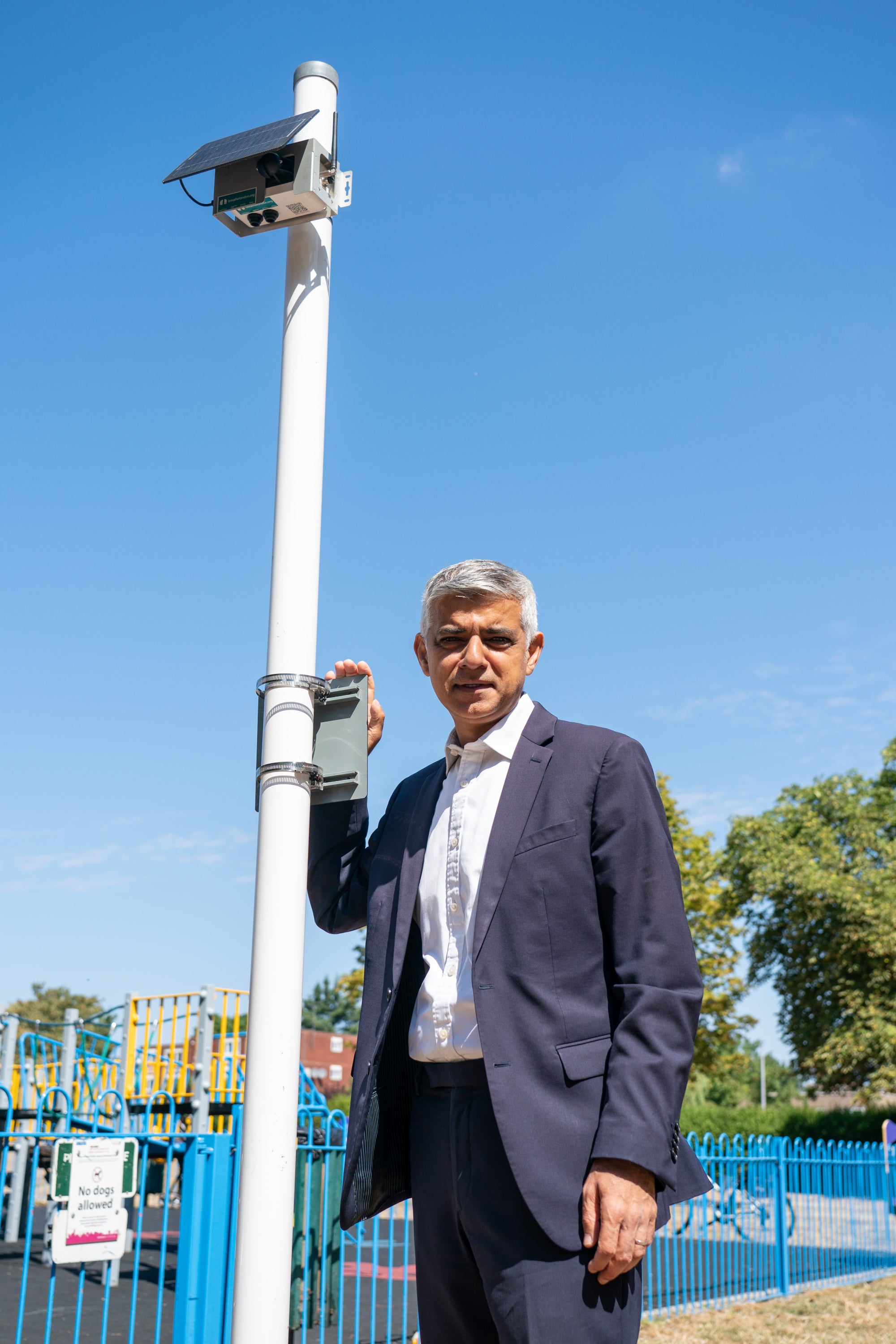
Paul Robins, a 60-year-old plumber, owns three vehicles that were initially classed as not Ulez-compliant. He managed to get the decisions overturned after providing TfL with certificates of conformity – but only after a process he branded a “ridiculous fight”.
“The thing that really annoys me is it was so much of a fight. They reject [the compliancy application] for nonsensical reasons,” he said, warning that the Ulez expansion “could be the death of the modern classic car”.
It’s not just the public for whom the policy has proved divisive. It has also caused tension among Labour ranks – especially after the Uxbridge and South Ruislip by-election earlier this summer.
The Conservatives narrowly held on to the seat by campaigning against the expansion, as Sir Keir Starmer urged the mayor to “reflect” on how the policy had cost the Labour Party the constituency.
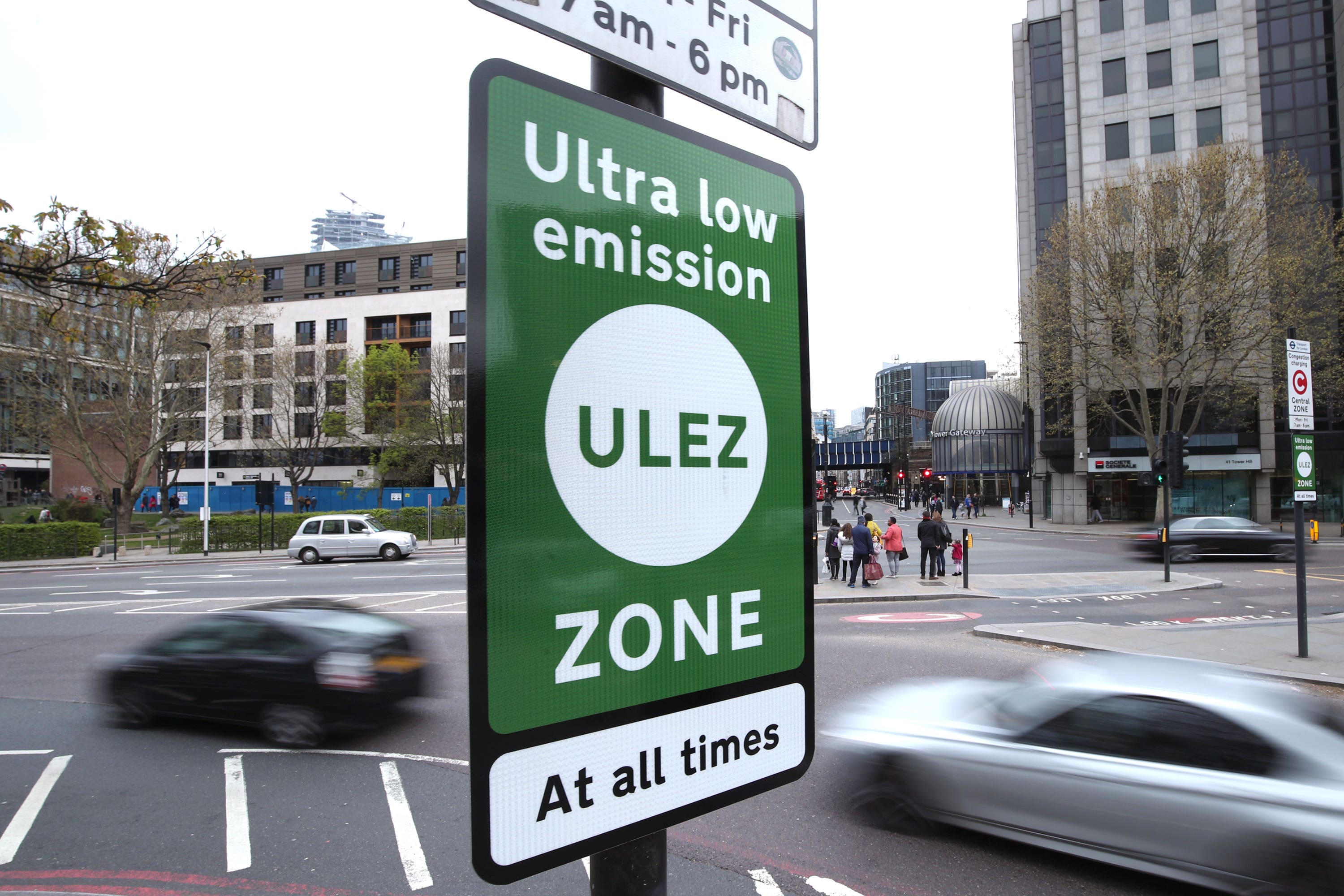
Speaking to journalists at the time, Sir Keir refused to defend the Ulez scheme and said: “Ulez was the reason we didn’t win there yesterday. We know that. We heard that on the door[step].”
The newly elected MP for Uxbridge, Steve Tuckwell, told The Independent that the by-election result was a “clear message” to Mr Khan to “halt your Ulez expansion”.
But Mr Khan has remained defiant. “I am quite clear, in relation to the evidence I have seen, that the consequences of air pollution are heartbreaking when you have spent time with a bereaved mum,” he said. “We have been trying to make sure we can both tackle air pollution, tackle the climate emergency, but help support Londoners during this transition.
“The vast majority of Londoners want to see clean air, and I recognise there are some Londoners with genuine concerns. My job is to try and address those concerns, and I have been doing that.”




Join our commenting forum
Join thought-provoking conversations, follow other Independent readers and see their replies
Comments